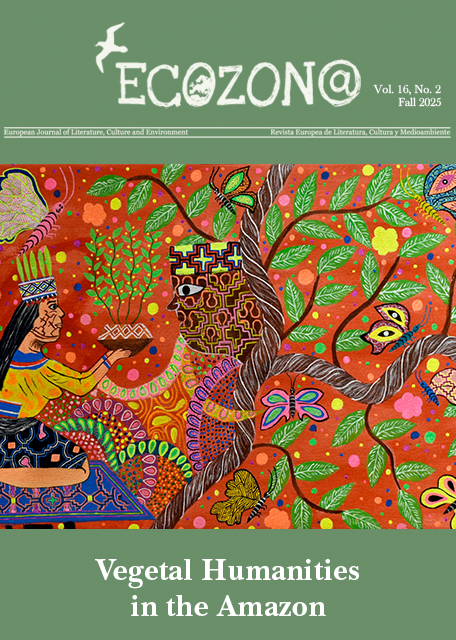Landscapes of Extraction and the Memories of Extinction in Patricio Guzmán’s Nostalgia de la luz and El botón de nácar
DOI:
https://doi.org/10.37536/ECOZONA.2020.11.1.3325Schlagworte:
Patricio Guzmán, extraction, extinction, landscape, memory, historyAbstract
Focusing on Guzmán's essay films Nostalgia de la luz (2010) and El botón de nácar (2015), in this article I argue that the ambiguity between reference and abstraction that pervades the visual representation of landscape in late capitalism offers a productive way to map out the processes of extinction caused by continual histories of extraction. This ambiguity not only reveals the limits of the landscape-form to convey the degradation of nature, but also the progressive disappearance of the human subject from the center of history in such spaces where capital seeks time and time again to resolve its internal contradictions through new forms of resource extraction. In this fashion, Guzmán’s totalizing aspiration to represent the historical, archaeological, and even cosmological pasts through the landscapes of the Atacama Desert and Patagonia becomes a way to explain how capital has moved from the human to the planetary, which entails a larger alteration of ecological metabolism and transforms extinction into the only historical horizon. I conclude that the memory of past processes of extraction and extinction inscribed in these landscapes can also function as a prolepsis of a future without us, thus presenting an opportunity to reactivate the subject’s historical potential to change the way we relate to nature.
Downloads
Downloads
Veröffentlicht
Ausgabe
Rubrik
Lizenz
Authors who publish with this journal agree to the following terms:
a) Authors retain copyright and grant the journal right of first publication with the work simultaneously licensed under a Creative Commons Attribution License that allows others to share the work with an acknowledgement of the work's authorship and initial publication in this journal (CC BY-NC for articles and CC BY-NC-ND for creative work, unless author requests otherwise.
b) Authors are able to enter into separate, additional contractual arrangements for the non-exclusive distribution of the journal's published version of the work (e.g., post it to an institutional repository or publish it in a book), with an acknowledgement of its initial publication in this journal.
c) Authors are permitted and encouraged to post their work online (e.g., in institutional repositories or on their website) prior to and during the submission process, as it can lead to productive exchanges, as well as earlier and greater citation of published work (See The Effect of Open Access).










